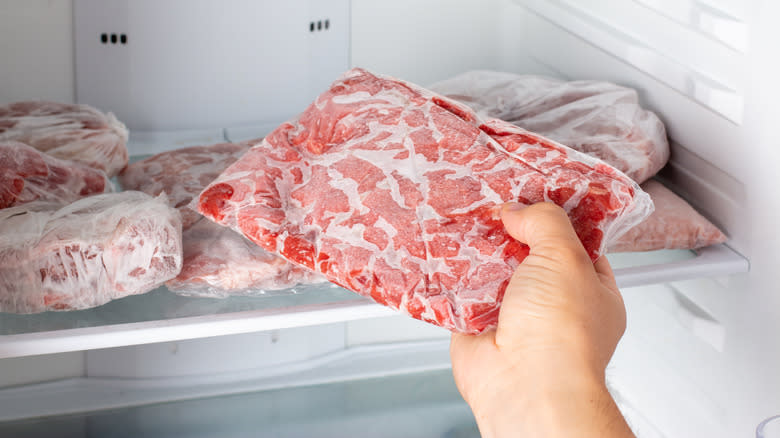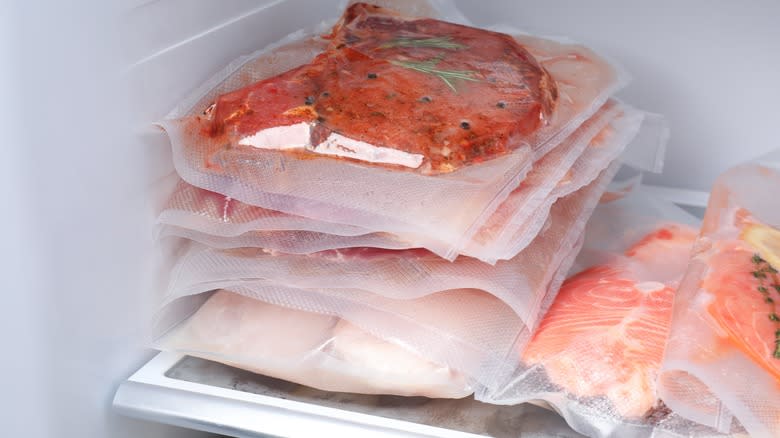How Long You Can Safely Store Thawed Meat In The Fridge

To avoid the approximately 52.4 tonnes of boneless meat wasted every year, freezing your beef or pork before it has a chance to go bad is an excellent idea. Once you've followed the recommended method for thawing it in the refrigerator -- or abided by a few other reputable techniques, like the unexpected cast iron process -- you're left with a chunk of protein that's ready to cook. However, just like with fresh meat, thawed packages can go bad if you leave them in the fridge for too long. But how long is too long?
Most importantly, it depends on what type of meat you're working with. Ground meat, poultry, and fish need to be cooked within two days of thawing, while red meat like lamb or beef can generally stay safe to eat for five days. These are generally the same time frames the USDA provides for keeping fresh meat in the fridge that has never been frozen. Because your freezer halts the growth of bacteria and microbes, it essentially stops the clock on your protein going bad.
Read more: What Happens If You Accidentally Eat Mold?
Use The Fridge To Keep Your Meat Fresher For Longer

While thawed meat can stay safe to eat for the time frames listed above, it'll need to be stored properly to do so. Essentially, you'll want to defrost your protein in the fridge if you want to store it after it's supple again. If you thaw it in cold water or the microwave (which you may want to reconsider doing anyway), the USDA advises cooking it immediately. And even if you place your frozen meat in the fridge overnight, make sure to keep it there until you're ready to cook. Once it enters warmer air -- anything between 40 and 140 degrees Fahrenheit -- it's easy for bacteria to grow.
But let's say you've defrosted your ground beef, and later realize you won't be whipping up hamburgers for another week. In this case, it is possible to refreeze the meat, but only if you've thawed it in the fridge, and only if you're still within the time frame where it hasn't gone bad. However, be prepared for a slight potential loss in quality. Refrozen proteins may become drier due to oxidation, and you may notice a change in their appearance or smell. But don't let that deter you -- in some instances, refreezing may actually increases a meat's juiciness, and if it's still safe to eat, this method is ultimately better than tossing your protein in the trash.
Read the original article on Tasting Table

 Yahoo Lifestyle
Yahoo Lifestyle 
